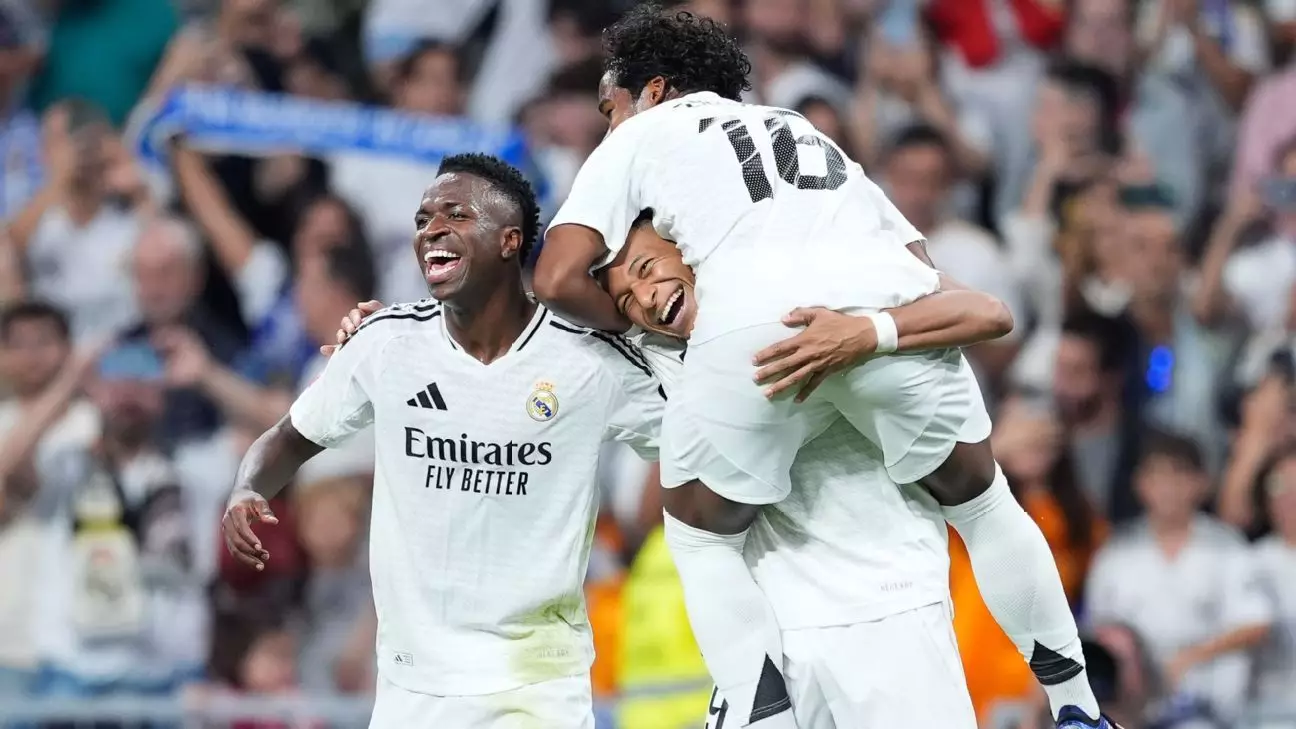In a thrilling encounter that saw Real Madrid overcoming Espanyol 4-1, head coach Carlo Ancelotti reflected on his team’s gradual improvement following a less-than-stellar first half. The match, held at Santiago Bernabéu, exemplified a recurring theme in Madrid’s current season: the difficulty of finding rhythm early in games. With a mere single first-half goal throughout the season, it has become evident that the team struggles to ignite offensively before the break. The setback of conceding a goal to goalkeeper Thibaut Courtois upon the second-half restart only added to the pressure, but Madrid’s resolve shone through as they launched a decisive comeback.
A pivotal moment arrived with the substitution of Vinícius Júnior. His entry into the match infused life into a moribund attack, leading to a cascade of goals that solidified Madrid’s dominance. Recognition of this substitution is essential, for it not only altered the trajectory of the match but showcased Ancelotti’s tactical flexibility. Underpinning this change was a newfound sense of urgency that resonated among the players. The contributions from Dani Carvajal, Rodrygo, Vinícius, and Kylian Mbappé epitomized the team’s depth in talent and strategic execution, indicating their capability to strike from various angles.
Ancelotti’s post-match remarks highlighted a shift in the team’s approach following Espanyol’s initial success. By playing with increased tempo and sharper movements, Madrid shifted the match’s dynamics substantially. This aspect raises an interesting discourse about in-game management and adaptability. It’s not simply about the tools available to a coach like Ancelotti, but how they utilize those resources to evoke a more aggressive style of play. The third goal, characterized by a magnificent counterattack, stands out as a defining moment that illustrated the potency of Madrid’s attacking strategy, revealing the team’s capability for stellar teamwork under pressure.
Despite fluctuating performances, the underlying statistics suggest a resilient Madrid side. Unbeaten in their last six LaLiga matches, including four victories and two draws, they have carved out an impressive unbeaten streak that extends to 38 league games, stretching back to September 2023. This consistency in results belies the uneven quality of their performances, revealing a team that is learning to grind out results even in muted displays.
While it’s evident that Madrid has not always dazzled this season, their potential remains unbounded. The discrepancy between their first and second-half outputs poses a puzzling challenge moving forward, with most of their goals coming after halftime. This phenomenon deserves attention; it might spur Ancelotti and his coaching staff to ignite that early spark, aiming for a more balanced and cohesive performance throughout the full 90 minutes. As they aim for strategic precision, the reliance on star talents like Rodrygo, Mbappé, and Vinícius continues to define Madrid’s identity, leaving fans to wonder if this iteration of the squad can unify their play and capture both early dominance and full-match consistency.

